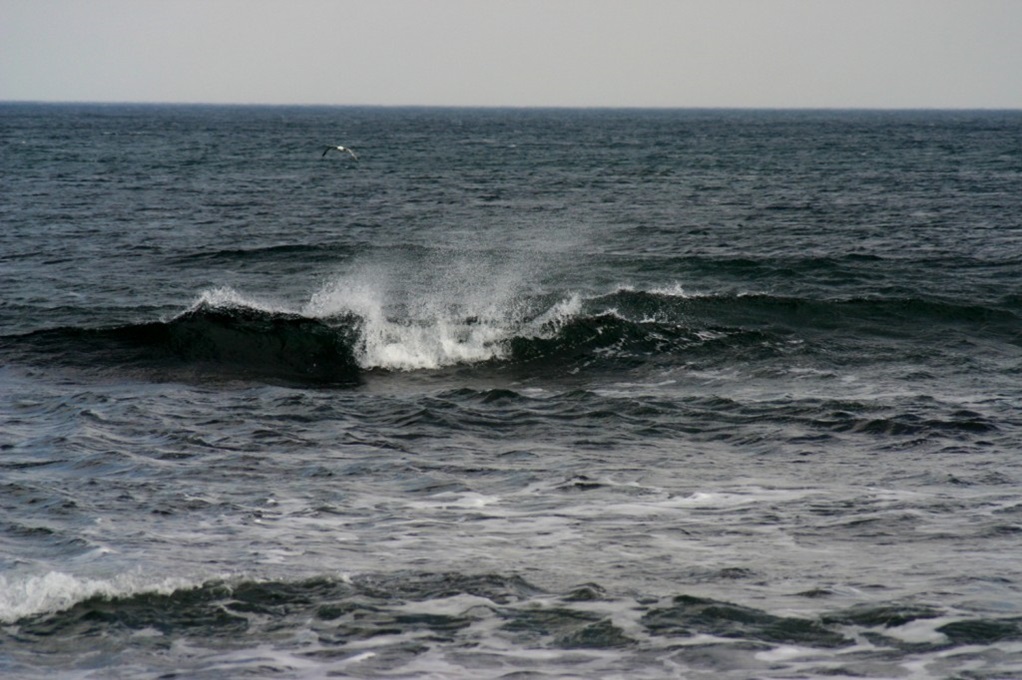Hydrogen sulfide, a toxic chemical that exists in significant quantities in the depths of the Black Sea, has long been considered a risk to the local marine ecosystem. But some experts believe it could be used as a source of clean energy equivalent to over 850 million tons of oil, with added ecological benefits.
With the combined effects of climate change and increased pollution, the Black Sea ecosystem faces the danger of hydrogen sulfide rising from the oxygen-poor seabed to the much more biodiverse areas closer to the surface, where it can harm marine life.
Some scientists, like Ibrahim Dincer, think that through environmentally friendly methods, these vast reserves of hydrogen sulfide can be used to obtain energy-rich hydrogen, a clean fuel expected to play key role in the transition away from fossil fuels.
Highly flammable, hydrogen is the lightest and most abundant substance in the universe, according to Dincer, a faculty member of Ontario Technical University and Yildiz Technical University in Istanbul, who is also an expert in clean energy systems.
Hydrogen is found in many substances on the planet, including water. Through various methods, water molecules can be separated into their constituent hydrogen and oxygen. If the energy needed for this is produced using renewable and clean sources, like wind or solar, the resulting fuel is called green hydrogen.
Dincer explained that hydrogen sulfide, meanwhile, contains sulfur as well as hydrogen, and procedures such as electrolysis, thermal, catalytic, and photocatalytic separation can be used to produce the fuel. He added that for an energy type to be considered green, it needed to be produced without using fossil fuels and without emitting greenhouse gasses like carbon.
The Black Sea is in a position to meet almost 50 years’ worth of sulfur demand in the world, said Dincer, who is also the president of the Hydrogen Technologies Association, Coordinator of the Energy Working Group at the Turkish Academy of Sciences (TUBA), and a member of the Executive Board of the Turkish Energy, Nuclear, and Mining Research Institute (TENMAK).
Besides these end products, he said, this process would also involve added value production and economic income, while also helping rehabilitate the Black Sea.
In order to protect the Black Sea from pollution, the signatory countries of the Bucharest Convention signed in 1992, including Türkiye, declared Oct. 31 as “International Black Sea Day” in 1996.
producing green hydrogen from hydrogen sulfide in the Black Sea would be highly beneficial for the marine ecosystem. There are not many living creatures in areas with hydrogen sulfide.
Tags: Black Sea, Clean Energy, Green Fuel, Marine Life



Recent Posts
Scandlines Nears Delivery of Zero Emissions Ferry Following Successful Sea Trials
India faces emission roadblocks with rising net-zero demands
Green Energy Resources invests in two electric Liebherr LHM 550
NYK Launches Continuous Use of Bio LNG Fuel on Car Carriers to Advance Decarbonization Goals
Yang Ming Expands Fleet with Methanol and LNG Dual-Fuel Vessels Under Fleet Optimization Plan
ClassNK Advocates Speed Gap Monitoring to Optimize Fuel Efficiency in Heavy Weather
Wärtsilä’s retrofit package for the Corsica Linea ferry Pascal Paoli has resulted in fuel savings of up to 22 percent Corsica Linea
COSCO Shipping Names Second Methanol Dual-Fuel Containership in Yangzhou